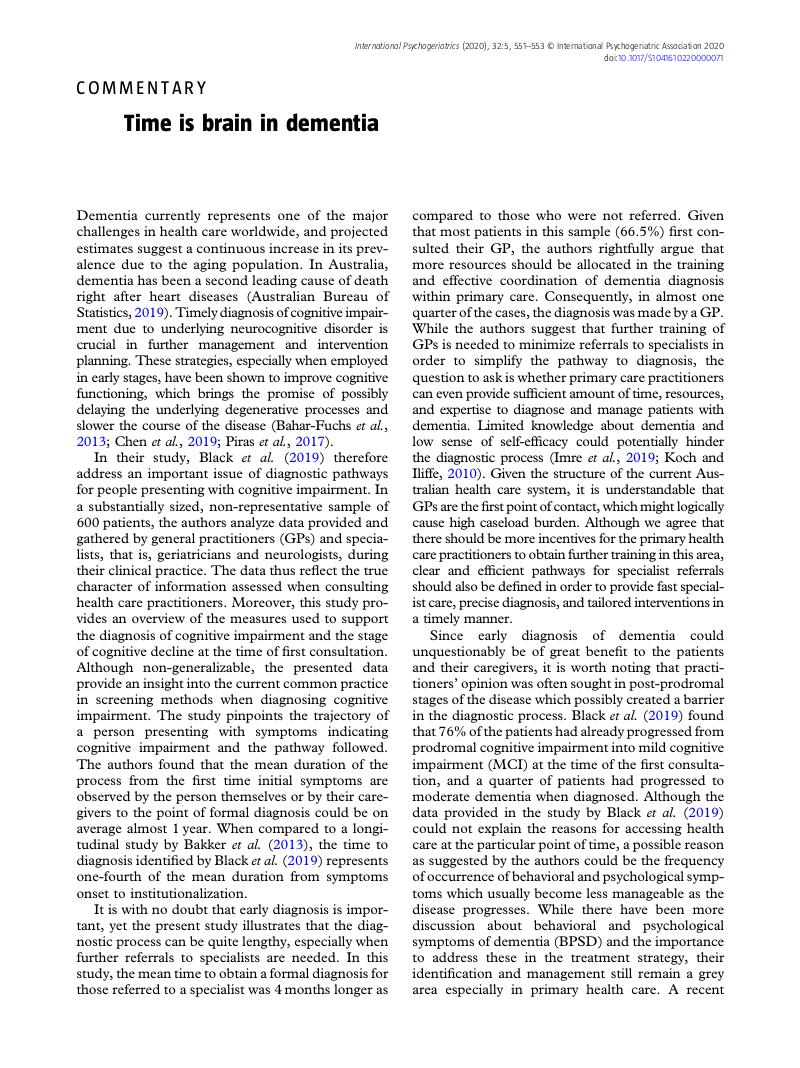Crossref Citations
This article has been cited by the following publications. This list is generated based on data provided by Crossref.
Hicks, Eleanora B.
Ahsan, Naba
Bhandari, Apoorva
Ghazala, Zaid
Wang, Wei
Pollock, Bruce G.
Rajji, Tarek K.
and
Kumar, Sanjeev
2021.
Associations of visual paired associative learning task with global cognition and its potential usefulness as a screening tool for Alzheimer’s Dementia.
International Psychogeriatrics,
Vol. 33,
Issue. 11,
p.
1135.



